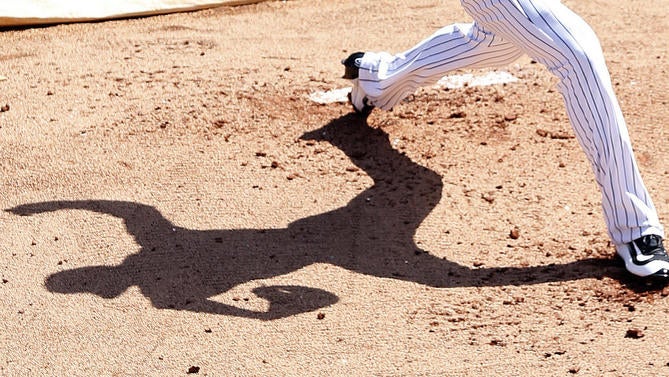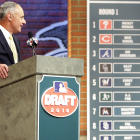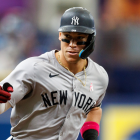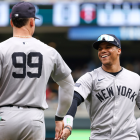Baseball's new collective bargaining agreement has brought some major changes to the game. The free agent compensation system has been overhauled, the luxury tax threshold has been raised, and a hard cap for international spending has been implemented. All that will change the way teams do business.
As part of the new CBA, the top 50 pitching prospects in each year's draft will now be able to volunteer for MRIs to provide clarity about their health.
In @MLB Draft, there's a new program in which top 50 pitching prospects are asked to (voluntarily) undergo a pre-draft MRI on throwing arm.
— Jon Morosi (@jonmorosi) December 8, 2016
The top 50 are determined by the Major League Baseball Scouting Bureau, a central service that helps identify and scout players. All draft-eligible players must be registered with the MLBSB, and that responsibility falls on the bureau and MLB. It's up to them to register the player, not the player himself.
For obvious reasons, teams have been trying to gain more access to the medical records of draft prospects for years. They want to know as much as possible before the draft. At the same time, we're talking about private and personal medical information. Amateurs don't want to hand that out. I don't blame them.
This new program has its pluses and minuses. The pluses are big picture, the minuses are on an individual level.
The Bad
This is easier, so I'm going to start here. A pitcher subjecting himself to an MRI opens up the possibility that, you know, they find something bad.
MRIs are like art. They're open for interpretation. One doctor sees one thing and another sees something else. That's why second opinions exist.
If a player undergoes an MRI and it shows something teams don't like, his earning potential drops considerably. Right now, teams just assume everyone is healthy. They have no other choice. Now, if the player doesn't take the voluntary MRI, folks will wonder what's wrong. That's the way it goes.
The only way an individual player wins is by taking the MRI and having it come back squeaky clean. Take the MRI and it shows something bad, and your stock takes a hit. Decline to take the voluntary MRI, and people will wonder why you're trying to hide. That's rough.
The Good

Two years ago the Astros selected left-hander Brady Aiken with the first overall pick and agreed to sign him for more than $6 million. Then, during his pre-signing MRI, the team found something they didn't like in his elbow and reduced their offer substantially. Aiken declined and did not sign. He had Tommy John surgery the following spring and was selected 17th overall by the Indians. His $2.5 million was less than Houston offered after the MRI.
Aiken's bad MRI and decision not to sign did not only affect him, however. He agreed to a below-slot deal, and the Astros planned to use the savings on fifth-rounder Jacob Nix. Houston lost the pool money associated with the No. 1 pick when Aiken didn't sign, which means the money they agreed to give Nix disappeared. The Astros reneged on their deal with Nix, because if they'd have stuck to the agreement, they would have gone over their bonus pool and forfeited their 2015 first-round pick.
(Nix filed a grievance against the Astros because they went back on their handshake agreement, and the two sides settled before a hearing. They reportedly paid him $1.5 million, the amount of their original agreement.)
The new MRI rules mean situations like Aiken's (and Nix's) won't happen. Teams won't have to risk draft pool space on potentially injured players and lost bonus money when the physical shows something unexpected. In the grand scheme of things, the money is still going to the players, and that's good. Teams won't walk away and forfeit pool money rather than sign an injured player.
So the overall good news is the pre-draft MRIs will help keep pool money with the players. Teams won't forfeit it and walk away from an injured player. The bad news is an individual player could potentially lose a lot of negotiating leverage if the MRI shows something out of the ordinary. Stick any pitcher in an MRI tube and it'll show something unusual. Even high school and college kids. Pitching is not natural.
If were a parent of a top-50 draft pitching prospect, would I let him undergo the MRI? Gosh, that's tough. You have to trust the kid is telling you the truth about his health and how he feels, and trust his representative can still cut a good deal if the MRI shows something unexpected. It's a risk, no doubt about it.






















